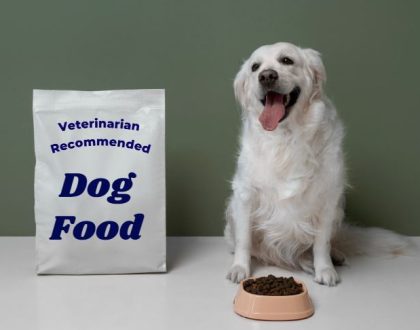
the scientific study of pet nutrition by veterinary nutrition specialists and experts.
What’s in a name? What is a Board Certified Veterinary Nutritionist and why does it matter?

We know that many pet owners are desperate for accurate, trustworthy information about how to feed their pets, whether they’re healthy or if they have a medical condition. But we know firsthand the amount of confusing and conflicting pet nutrition information that’s out there and how hard it can be for pet owners (and often even veterinarians) to make sense of it all. In fact, that was the reason we started Petfoodology – so that it can be one of the first places to look for reliable information on how to feed your pet. We designed it to answer the common questions that pet owners ask us every day.
However, even knowing who to talk to about your pet’s nutrition can be confusing. Some pet owners tell me that a “nutritionist” selected or formulated their pet’s diet. I always ask for more information because, unfortunately, “nutritionist” is not a regulated term. For someone to say they’re a “nutritionist” can mean anything from taking a class to having a degree in a related field to being a veterinarian who has completed advanced residency training in nutrition. Or, it can just be a person who calls themselves a nutritionist with no qualifications! Unfortunately, most pet owners take these titles at face value, rather than understanding the differences.
Like my two colleagues who write Petfoodology, I am a “Board Certified Veterinary Nutritionist”. To become board certified in a veterinary specialty, a veterinarian must complete four years of veterinary school, a one-year internship or equivalent, and then complete a two to three year residency program that meets the standards of a recognized specialty college or board. During the residency, there are strict training requirements, and then, finally, to become a specialist, the veterinarian must pass one or more rigorous examinations before becoming board certified. Only once all of this is completed can we call ourselves a Board Certified Veterinary Nutritionist or “Diplomate”. Like the three of us, some board-certified specialists also devote more years to earn Master’s or PhD degrees in their area of specialization. Currently, there are more than 20 recognized veterinary specialty organizations, with more than 40 different individual veterinary specialties (still far fewer than the more than 100 in human medicine).
A Board Certified Veterinary Nutritionist is unique in that we incorporate the medical knowledge from having a veterinary degree with nutritional expertise gained from our residency training in veterinary nutrition. As with other areas of specialization in veterinary medicine, such as surgery, cardiology, or ophthalmology, Veterinary Nutritionists are specialists, just like those you’re probably used to in human medicine. Nutrition has been a board-certified veterinary specialty for more than 30 years through the American College of Veterinary Nutrition, with nearly 100 of us Diplomates now in the United States. There is also a comparable board-certified veterinary specialty in nutrition in Europe – the European College of Veterinary and Comparative Nutrition (ECVCN) – which currently has nearly 50 Board Certified Veterinary Nutritionists. Veterinary technicians also can become certified as a Veterinary Technician Specialist in Nutrition.
A very exciting change occurred recently, and nutrition became the sixth ACVIM specialty, along with small animal internal medicine, large animal internal medicine, cardiology, neurology, and oncology! The American College of Veterinary Internal Medicine (ACVIM) is the largest of the recognized veterinary specialty organizations. So, instead of Diplomates of the American College of Veterinary Nutrition (DACVN), we’re now officially Diplomates of the American College of Veterinary Internal Medicine (Nutrition) or DACVIM (Nutrition).
There’s also now an easier way to find a Board Certified Veterinary Nutritionist. Specialists in all six of the ACVIM specialties, including Veterinary Nutritionists, can be found at www.vetspecialists.com. I encourage companion animal owners to check out this website as it’s the place that you can find board-certified veterinary specialists not only in nutrition, but also cardiology, oncology, neurology, and internal medicine (for small animals, such as dogs and cats, or large animals like horses, cattle, and llamas). You can search for a Board-Certified Veterinary Nutritionist in your area, but also for those who do remote consulting with clients or with primary care veterinarians. This is helpful since there are still not enough Veterinary Nutritionists around the country to be able to help all pet owners and veterinarians in-person.
The Vetspecialists.com website also has a blog, articles, inspiring case stories, and more information on each of the individual specialties, including when you or your pet might benefit from working with a Board Certified Veterinary Nutritionist. As the newest ACVIM specialty, we’re gradually increasing the nutrition information on this website, so check back regularly (along with continuing to follow our Petfoodology website).
While you can find information on all six of the ACVIM specialties on this website, most of the other approved veterinary specialties, such as surgery, ophthalmology, dermatology, emergency and critical care, anesthesia, and toxicology, also have websites with great resources, such as information and FAQs for pet owners about common medical conditions and searchable directories to find board certified veterinary specialists in your area (e.g., Veterinary Surgeons, Veterinary Dentists, Veterinary Dermatologists).
You might wonder why I’m spending so much time talking about the alphabet soup of Veterinary Nutritionist, Board Certified Veterinary Nutritionist, and specialist in veterinary nutrition? That’s because it’s so easy to find people on the internet claiming to have pet nutrition expertise. I come across people claiming to be “nutritionists”, “pet nutritionists”, “clinical pet nutritionists” “pet nutrition coaches”, “pet therapeutic nutrition coaches”, “certified pet nutritionists”, and many other terms. Certifications that require courses can be anywhere for a few hours to several semesters and can cost a few hundred dollars to $10,000 or more! Similarly, these courses are taught by everyone from pet owners, animal nutritionists, human nutritionists, veterinarians, veterinary technicians, or Board Certified Veterinary Nutritionists. It is also easy to get confused by the title “Board Certified Companion Animal Nutritionist.” These are indeed Board Certified Animal Nutritionists, but this is not the same as a Board Certified Veterinary Nutritionist since it does not require a veterinary degree or residency training.
There are now more specialists in veterinary medicine with advanced training and expertise in specific areas, including nutrition. If you pet has multiple medical issues, complicated conditions, has trouble maintaining ideal weight, or you wish to feed a non-traditional diet, talk to your primary care veterinarian about whether a consultation with a Board Certified Veterinary Nutritionist would help your pet to have the best possible outcome. You can learn more on the Vetspecialists.com website.
Want to read more information on feeding your pet?
Subscribe to always know when we add new material!
Recommended Posts

Can Diet Help With My Dog’s Seizures?
January 18, 2024

The Most Popular Holiday Foods…That Your Pet Should Avoid!
December 08, 2023

Veterinarian Recommended Pet Foods: What You Need to Know
November 05, 2023

